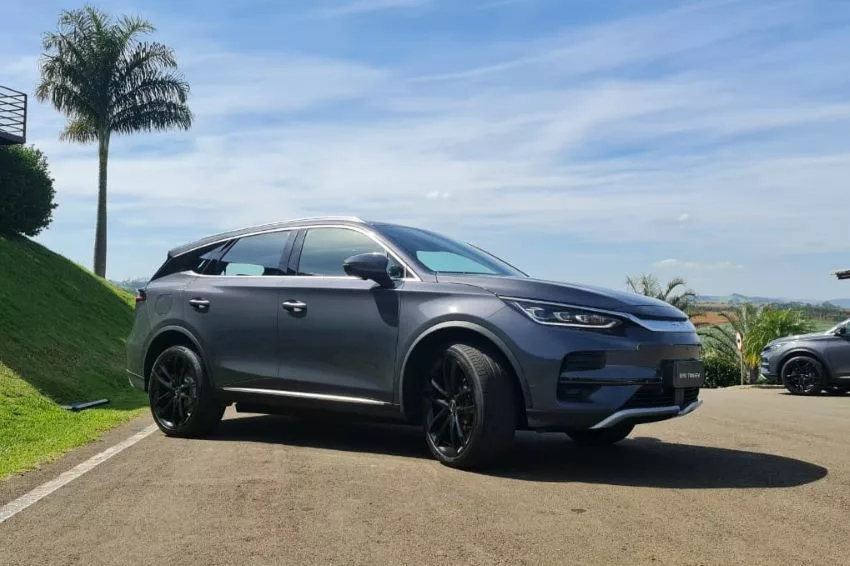The automotive industry is undergoing a seismic shift as it races towards a more sustainable future. Did you know that according to Bloomberg Green, global electric vehicle (EV) sales are expected to reach 26 million units by 2030, up from just over 10 million in 2022? This surge underscores the growing importance of EVs in the broader push for environmental sustainability. As we stand on the precipice of 2024, a pressing question emerges: in the tug-of-war between EVs, hybrids, and traditional gas-powered cars, which truly leads the charge in 2024’s green revolution?
In this article, we’ll dissect the advantages and drawbacks of each vehicle type, providing you with the insights needed to make an informed decision. Whether you’re an eco-conscious consumer or a car enthusiast curious about the latest trends, you’ll discover the practical realities of choosing between electric vehicles, hybrids, and gas cars in today’s rapidly evolving automotive landscape.
Understanding Electric Vehicles (EVs)
What Are EVs?
Electric vehicles are powered solely by electricity stored in a battery pack. Brands like Tesla, Rivian, and BYD have become household names in this segment, offering sleek designs and innovative technology.
Advantages of EVs
- Environmental Impact: EVs produce zero tailpipe emissions, making them an eco-friendly alternative to gas cars.
- Cost Efficiency: With fewer moving parts and no need for gas, EVs often have lower maintenance costs and reduced fuel expenses.
- Performance: Known for instant torque, EVs like the Tesla Model S can accelerate from 0 to 60 mph in just 2.3 seconds.
Challenges of EVs
- Charging Infrastructure: While networks like Tesla’s Supercharger and Electrify America are expanding, access can still be limited in rural areas.
- Initial Cost: Despite dropping prices, EVs generally have a higher upfront cost compared to traditional vehicles.
The Role of Hybrids in the Green Transition
What Are Hybrids?
Hybrids, such as the Toyota Prius, combine a gasoline engine with an electric motor, offering a balance between performance and efficiency.
Advantages of Hybrids
- Fuel Efficiency: Hybrids offer improved fuel economy, often achieving 50+ mpg, making them ideal for long-distance travel.
- Lower Emissions: By using electric power at lower speeds, hybrids reduce emissions compared to gas-only vehicles.
- Flexibility: With both an internal combustion engine and an electric motor, hybrids provide versatility in various driving conditions.
Challenges of Hybrids
- Complexity: The dual-system nature can lead to higher maintenance costs over time.
- Limited Electric Range: Unlike plug-in hybrids (PHEVs), traditional hybrids can’t run long distances solely on electric power.
Gas Cars: The Traditional Choice
Why Consider Gas Cars?
Despite the push for green technologies, gas cars remain prevalent due to their established infrastructure and lower initial costs.
Advantages of Gas Cars
- Infrastructure: Gas stations are ubiquitous, making refueling convenient.
- Variety: A wide array of models are available, from budget-friendly options to luxury vehicles.
- Proven Technology: Decades of refinement have optimized performance and reliability.
Challenges of Gas Cars
- Environmental Impact: Gas cars are significant contributors to greenhouse gas emissions.
- Fuel Costs: With fluctuating gas prices, operational costs can be unpredictable.
Practical Tips for Choosing the Right Vehicle
How to Decide?
- Assess Your Driving Habits: If you frequently take long trips, a hybrid might offer the best of both worlds.
- Consider Charging Access: For city dwellers with easy access to charging stations, an EV could be ideal.
- Evaluate Budget: Though EVs may have a higher upfront cost, they often save money in the long run through reduced fuel and maintenance expenses.
Where to Buy?
- For EVs: Check out brands like Tesla and Rivian for direct sales, or visit local dealers with growing EV inventories.
- For Hybrids and Gas Cars: Traditional dealerships offer a range of options, often with certified pre-owned vehicles that can provide value.
Conclusion: The Road Ahead
In 2024’s green revolution, the choice between EVs, hybrids, and gas cars hinges on personal priorities and practical considerations. EVs lead the charge in sustainability and innovation, with expanding infrastructure promising a brighter future. Hybrids offer a middle ground, balancing eco-friendliness and convenience, while gas cars, though environmentally costly, still hold relevance due to their accessibility and variety.
As the world accelerates towards sustainability, which path will you choose? Share your thoughts in the comments below, and stay tuned as we continue to explore the electrifying developments in the automotive industry. Whether you’re inspired by the rapid growth of EV technology or the enduring appeal of traditional vehicles, the journey towards greener roads is one that promises exciting opportunities and profound change.

